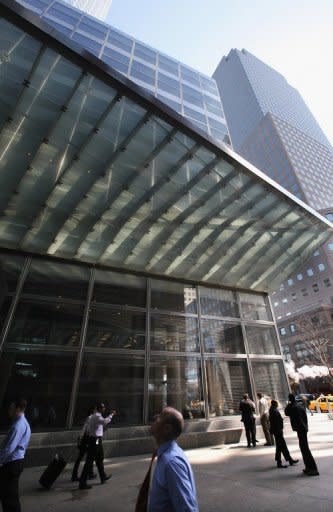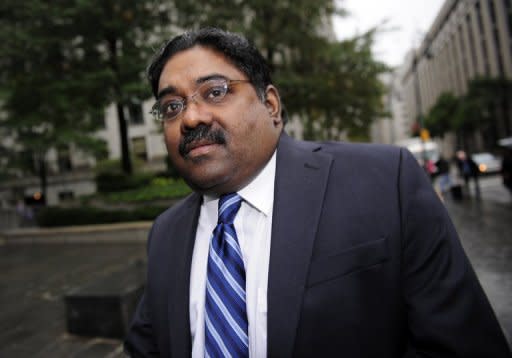Insider trading trial starts for ex-Goldman director
The trial of the biggest suspect in a US crackdown on Wall Street insider trading, former Goldman Sachs director Rajat Gupta, started with a prosecutor saying the brilliant Indian-born immigrant "threw away his duties." "Gupta threw away his duties, threw away his responsibilities and broke the law," Assistant US Attorney Reed Brodsky told a jury in New York federal court in his opening statement. Brodsky said Gupta, 63, was "highly accomplished," but had a dark side, "hidden from public view" in which he fed confidential information to his friend and billionaire hedge fund investor Raj Rajaratnam. Rajaratnam, founder of the Galleon Group, was convicted last year of insider trading and sentenced to 11 years in prison. According to prosecutors, Gupta was a key cog in Rajaratnam's scheme. With a CV that included membership of the boards of Goldman Sachs and Procter & Gamble, and the top job at McKinsey & Co, Gupta was "the ultimate insider," Brodksy said. Gupta is accused of tipping off Rajaratnam on bombshell market news such as Goldman's fourth quarter loss during the 2008 financial crisis -- early information that allegedly let Sri Lankan-born Rajaratnam make money when the news became public. Another alleged tip was that legendary investor Warren Buffett was about to pour $5 billion into Goldman Sachs, a vote of confidence that raised the bank's share price the next day, earning Rajaratnam about $1 million. "He used those secrets to help his friend and business partner Raj Rajaratnam," Brodksy said. It "was like knowing about the outcome of a game before it ends." Gupta, who could face a double-digit prison sentence if convicted, wore a dark suit and tie. He watched and listened intently as the three- to four-week trial got under way. His lawyer, Gary Naftalis, said the prosecution was "cherry picking" evidence to cover up the lack of a solid case against a highly principled man. "They're presenting a case that is based on speculation, that is guesswork," Naftalis said. "We don't convict people based on rumors, based on hearsay." He described his client as a self-made success who worked his way from India through to the US economic elite, a man with a previously unblemished reputation who spends half of his time on charity duties, not business. Crucially, Naftalis argues that the government has no smoking gun in the form of the kind of wire tapped telephone conversations that doomed Rajaratnam during his trial. "There is not a single wire tap conversation where Rajat Gupta gives a single inside information," he said. Earlier, the jury was picked from a pool of about 100. Jury composition could be important in a city where the financial sector has huge weight, but where the reputation of Wall Street has been severely tarnished since the market crash of 2008 and national recession. The defense team revealed just before the trial started that it had retained an expert advisor on the jury selection process and that it also wanted a high speed Internet connection in the courtroom so as to be able to communicate with its office co-workers on researching potential jurors. Prosecutors objected to this, but the judge, Jed Rakoff, said he was not against instant research into jurors through Google and other search engines. Often, "conflicts involving certain jurors so to speak have been discovered too late and I think it's better to find that out sooner than later," he said. Among the first prosecution witnesses to then take the stand will be Goldman director William George and another Goldman high-ranking figure, Byron Trott. The bank's CEO, Lloyd Blankfein, could also take the stand later.




